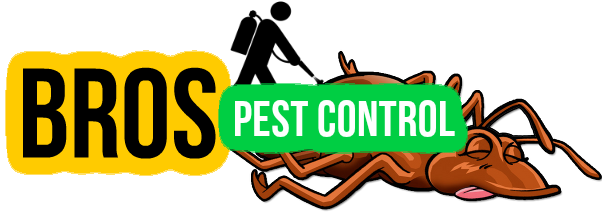Bee Removal Miami, FL | Wasps, Hornets, Bumble Bees
Miami Safe Bee Removal & Extermination
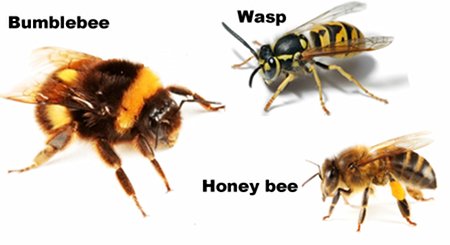 Are you looking for bee removal Miami, FL? Bro’s Pest Control is your connection to safe bee removal and extermination services. Exterminators within our network specialize in: wasp control, hornet control, bee swarm removal and bee removal. Pest control services can also include sealing off the entrances and exits, repairs from hive and damage, as well as traps. Bee’s can pose danger, especially if a loved one is allergic. Contact Bro’s Pest Control today to control your bee problem in the Miami area.
Are you looking for bee removal Miami, FL? Bro’s Pest Control is your connection to safe bee removal and extermination services. Exterminators within our network specialize in: wasp control, hornet control, bee swarm removal and bee removal. Pest control services can also include sealing off the entrances and exits, repairs from hive and damage, as well as traps. Bee’s can pose danger, especially if a loved one is allergic. Contact Bro’s Pest Control today to control your bee problem in the Miami area.
For Bee Control Miami, Florida Call, 1-888-497-9069
Specialized Bee Removal & Extermination
Bro’s Pest Control professionals can help you with all different bee problems including:
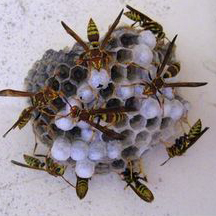 Removal of hives, bee swarm removal, yellow jacket removal, hornet removal, bumble bee removal and various of bee removal jobs. Bee removal Miami, FL experts will come out to your home or business and remove unwanted bee’s safely and at a reasonable price. Same day appointments for bee removal can be scheduled, if needed. Ready for bee control Miami, FL? Contact us today by calling 1-888-497-9069.
Removal of hives, bee swarm removal, yellow jacket removal, hornet removal, bumble bee removal and various of bee removal jobs. Bee removal Miami, FL experts will come out to your home or business and remove unwanted bee’s safely and at a reasonable price. Same day appointments for bee removal can be scheduled, if needed. Ready for bee control Miami, FL? Contact us today by calling 1-888-497-9069.
Bee, Wasp & Hornet Treatment
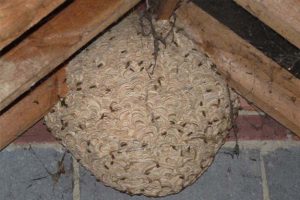 Bee, wasp or hornet treatment Miami, FL will require one of our bee specialists to come out to your home to perform a free inspection. They will arrive fully equipped to eliminate your bee issue. The bee exterminator will identify the location of the nest, depending on the type of stinging insect problem you have, and eliminate/remove the problems to protect your family’s health and safety. In the case of a hornets nest, the technician will treat the nest and return to remove it after insuring that all the pests have been killed.
Bee, wasp or hornet treatment Miami, FL will require one of our bee specialists to come out to your home to perform a free inspection. They will arrive fully equipped to eliminate your bee issue. The bee exterminator will identify the location of the nest, depending on the type of stinging insect problem you have, and eliminate/remove the problems to protect your family’s health and safety. In the case of a hornets nest, the technician will treat the nest and return to remove it after insuring that all the pests have been killed.
Bees are flying insects closely related to wasps and ants, known for their role in pollination and, in the case of the best-known bee species, the European honey bee, for producing honey and beeswax. For bee removal Miami, FL — contact us today!
Bee Extermination Miami, Florida
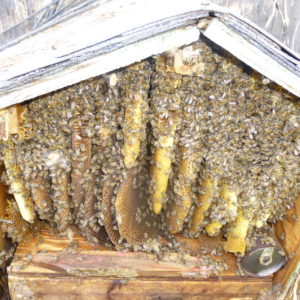 Assuming the bee's in question are not honeybee's, a Bro's Pest Control expert can exterminate them. Every year, beekeepers are called upon to give advice regarding the removal of honey bees (and other insect pests) from homes and buildings since honey bees are NOT to be exterminated. Honey Bee removal on the other hand, includes relocating the bee's to a different location. If you have a bumble bee, wasp or yellow jacket bee problem in Miami, FL -- then extermination can be done. For wasp, bumble bee, hornet or yellow jacket extermination Miami, FL -- please get in touch with Bro's Pest Control today!
Assuming the bee's in question are not honeybee's, a Bro's Pest Control expert can exterminate them. Every year, beekeepers are called upon to give advice regarding the removal of honey bees (and other insect pests) from homes and buildings since honey bees are NOT to be exterminated. Honey Bee removal on the other hand, includes relocating the bee's to a different location. If you have a bumble bee, wasp or yellow jacket bee problem in Miami, FL -- then extermination can be done. For wasp, bumble bee, hornet or yellow jacket extermination Miami, FL -- please get in touch with Bro's Pest Control today!
Miami, Florida
Miami (/maɪˈæmi/; Spanish pronunciation: [miˈami]) is a seaport city at the southeastern corner of the U.S. state of Florida and its Atlantic coast. As the seat of Miami-Dade County, the municipality is the principal, central, and the most populous city of the Miami metropolitan area and part of the second-most populous metropolis in the southeastern United States.[7] According to the U.S. Census Bureau, Miami's metro area is the eighth-most populous and fourth-largest urban area in the U.S., with a population of around 5.5 million.[8][9]
Miami is a major center, and a leader in finance, commerce, culture, media, entertainment, the arts, and international trade.[10][11] In 2012, Miami was classified as an Alpha−World City in the World Cities Study Group's inventory.[12] In 2010, Miami ranked seventh in the United States in terms of finance, commerce, culture, entertainment, fashion, education, and other sectors. It ranked 33rd among global cities.[13] In 2008, Forbes magazine ranked Miami "America's Cleanest City", for its year-round good air quality, vast green spaces, clean drinking water, clean streets, and citywide recycling programs.[14] According to a 2009 UBS study of 73 world cities, Miami was ranked as the richest city in the United States, and the world's fifth-richest city in terms of purchasing power.[15] Miami is nicknamed the "Capital of Latin America"[1] and is the largest city with a Cuban-American plurality.[16]
Pesticides vary in their effects on bees. Contact pesticides are usually sprayed on plants and can kill bees when they crawl over sprayed surfaces of plants or other areas around it. Systemic pesticides, on the other hand, are usually incorporated into the soil or onto seeds and move up into the stem, leaves, nectar, and pollen of plants.[1]
Of contact pesticides, dust and wettable powder pesticides tend to be more hazardous to bees than solutions or emulsifiable concentrates. When a bee comes in contact with pesticides while foraging, the bee may die immediately without returning to the hive. In this case, the queen bee, brood, and nurse bees are not contaminated and the colony survives. Alternatively, the bee may come into contact with an insecticide and transport it back to the colony in contaminated pollen or nectar or on its body, potentially causing widespread colony death.[2]
